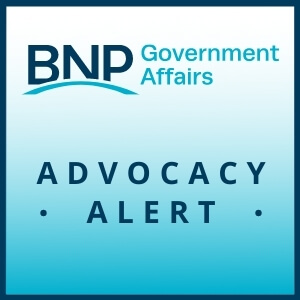Manufacturing Council Meeting 10/7/21
Blog Categories
October 7, 2021
BNP’s Q4 Manufacturing Council meeting focused on the New York State Climate and Community Investment Act’s potential impact on the manufacturing sector. We were joined by NYS Senate Minority Leader Rob Ortt and Donna DeCarolis, President of National Fuel Gas Distribution Corp.
This meeting also covered upcoming federal vaccination regulations for employers, ongoing BNP workforce development efforts, and an advocacy update on issues that directly impact Buffalo Niagara employers.
View the presentation slides here.
Watch the full webisode here:
SUPPORTING SPONSORS:
Related Posts
7.19.21 Advocacy Alert: Canadian Border Will Reopen to Vaccinated Americans August 9
Today, Canadian Minister of Health Patty Hajdu announced that the Canadian border will reopen to vaccinated American travelers on August 9th.
Read More7.16.21 BNP Advocacy Alert – Trudeau: Border Could Reopen to Vaccinated Travelers in August
In a conference call Thursday with Canadian officials, Prime Minister Justin Trudeau announced that Canada plans to allow vaccinated Americans to cross the border for non-essential travel by next month.
Read More9/24/21 Webisode: Navigating the New Federal Vaccine Mandate for Employers
President Joe Biden recently announced a new mandate requiring all employers with 100 or more employees to ensure their workforce is fully vaccinated or require weekly testing of unvaccinated workers.
Read MoreBNP Advocacy Insider – July 2021
The July 2021 Advocacy Insider is a roundup of important issues we are monitoring that could you and your business.
Read More





